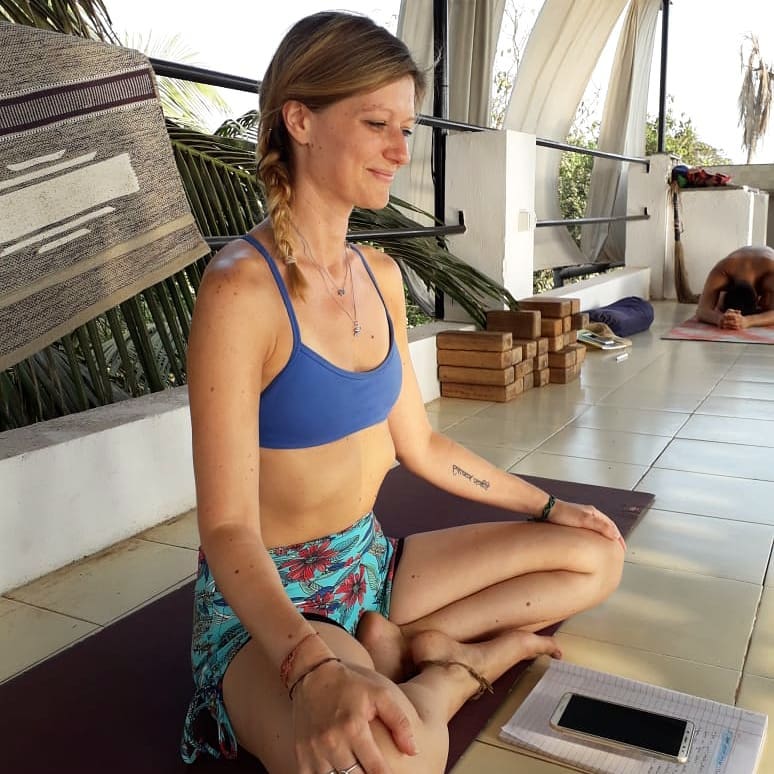The Ethics and Philosophy of Teaching Yoga: An Analysis of the Core Principles
One of the biggest responsibilities while playing the role of a yoga teacher is to teach and conduct the classes that are in sync with the ethics and philosophy of yoga. This means that it is the duty of a yoga teacher to impart the same wisdom that they have acquired at a reputed yoga teacher training program. There can be no mistake or inappropriate imparting of information while teaching. Another crucial thing is to create a safe and comfortable space for the students to open up to you while maintaining a respectable student-teacher relationship. Teaching how to practice safe and correct techniques is another important prerogative of teaching yoga. Giving honest feedback while also being the motivating factor in a student’s routine is another principle that a yoga teacher is bound by. And finally, it is important for a yoga teacher to be able to practically apply the philosophical aspects of yoga – the Yamas, the Niyamas, etc. in a day to day lifestyle.
Apply the philosophical base of Yamas and Niyamas into teaching. Once these are accomplished with each batch and student, the aim of a yoga teacher conducting a 200 hour Yoga TTC or any other teacher training program is truly fulfilled.
Some Guidelines to Begin With That are Part of Any Reputed 200 hour Yoga TTC, whether a 200 Hour Yoga Teacher Training in Rishikesh or a 100 Hour YTT.
Greet the students with a smile as they enter your class.
Talk to each student once in a while to keep a personal tracks of any injuries or pain.
Confirm the level of each student and guide them accordingly. Help them adjust to the poses with ease through modifications and variations.
Teach only what you know and have mastery over.
There is no student favourite for a yoga teacher. Every student is equal.
Maintain a decorum in and outside the class which also means avoiding meeting the students on a personal level.
Teaching with Aptness & Clarity
As yoga teachers, it is important to keep in mind that you are going to guide another entity (or entities) towards relinking their physical, mental, and astral bodies. This could give rise to a can of worms that some students might be holding inside. While a yoga teacher is not a psychiatrist, they become an important element of driving a student towards mental and physical wellbeing. There could be situations of vulnerability in front of you, a breakdown even. It is important that you do not preach what you have not learnt or do not know about. Get them additional professional help if needed.
Create a Safe & Comfortable Space
As a yoga teacher, it is your role to make sure that you create safe and comfortable space for your students to open up and practice with ease. This space is not just physical, but also mental. Maintain clean (swachh) surroundings for the thoughts and practices to flow smoothly.
Honoring the Yogic Values & Image
There are yogic values that we, as yoga teachers, must uphold at all times. This means we do not differentiate between our students, we treat them equally, irrespective of their age, body type, sex, orientation or race. For us, each student is an individual entity that needs equal attention and care. Similarly, keeping the image of yoga intact while making any sort of public appearance, be it on social media or an offline event, is an important role of a yoga teacher. Make a public appearance in a pose or teaching that is in sync with the yogic principles.
Practice Ahimsa (Non-Violence)
Make sure that your words or actions do not harm any of your students mentally, emotionally, or physically. You should be able to gaze where your student needs a slight push without the need to criticize them for being behind the class. You should know how to help them with hands-on adjustments while ensuring safe practices. Do not discuss any personal issue in public as it can lead the student to feel uncomfortable and acerbic. Create a space for them to heal. Help and guide each student carefully.
Practice Non-Possessiveness (Aparigraha)
Maintain a safe emotional and physical distance from your students as any attachment will only get in the way of fulfilling your duty as a yoga teacher. If you reach a point where you feel that you are unable to help your student anymore, prepare to let them go. You can’t be an amazing yoga teacher for everyone.
Practice Saucha (Cleanliness and Purity)
Cleanliness is next to Godliness. It is a strong virtue of a yoga teacher. Make sure that you arrive to the class in clean clothes and with a clear head too. Leave any emotional baggage outside the class. Keep the class clean, furnished with incense sticks and aromatic bowls, if needed. Make sure all the mats are back to being clean after the class. Stay grounded and humble towards your classes. Know your strengths as a yoga teacher and also your weaknesses that you need to work on. Avoid judging others and cultivate self-awareness.
Surrender Yourself Into the Class (ISHVARAPRANIDHANA)
You get to learn this at any reputed 200 hour yoga teacher training in Rishikesh and even a 100 hour yoga teacher training in Rishikesh, that there might be times when you realize that the energy in class does not match yours. It is okay to feel that way at times and it is okay for the class to be so as well. There should be no urgency to control how the overall energy of the class is. Just keep at it. Welcome each class, every pose, every theory you impart with mental and physical dedication.



